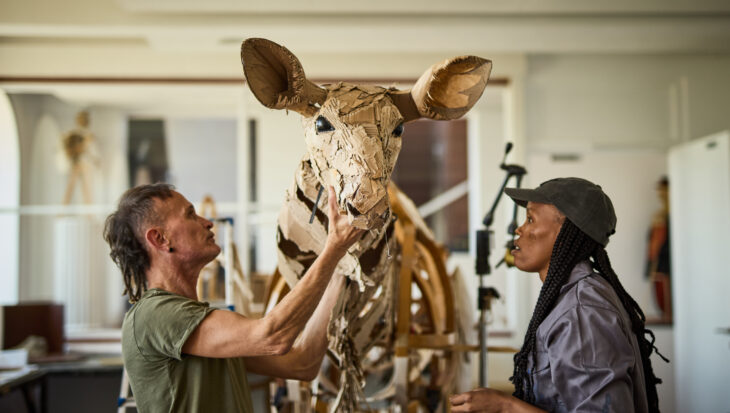‘The Herds’ will be arriving in London this Friday!
Have you heard? A breathtaking arts initiative, ‘The Herds’ will be arriving in London this Friday.
Posted 27 Jun 2025

Posted on the 1st February 2012
It is hardly surprising that both pandas at Edinburgh zoo have been sick with colic – no doubt as painful and distressing a condition in pandas as it is in children. The male, Yang Guang, is reported to have been sick for two weeks. His symptoms have included weakness and loss of appetite. Among the established causes of colic in children is ‘neurological over-stimulation’ – i.e. stress. How can these pandas not be stressed? Pandas’ natural habitat is a few mountain ranges in central China. They also used to roam lowland areas but farming and deforestation forced them out. In other words, yet another species has been driven to the brink of extinction through our own species’ greedy self-centredness.
Flying these animals half way across the world and sticking them in an urban enclosure where people can point, shriek and yell at them is not remotely connected to conservation. It is a 21st century version of the crass and heartless Victorian freak show.
Though the principals involved in this enterprise feign lofty motives, these unfortunate animals are, for them, nothing more than a marketable commodity – one that was fought over unsuccessfully by London and Colchester zoos before Edinburgh ‘triumphed’. The Chinese are only too aware of the monetary and political value of these iconic bears. As a consequence, they extract every ounce of profit they can from Western zoos and their backers. It should be noted that no panda has been relocated to the wild from a zoo, or from the Chinese’s own IVF-fuelled breeding stations. They tried with one, but the bemused animal was killed after stumbling into another’s territory.
As China’s economy develops, the pandas’ natural terrain continues to be fragmented by roads and railroads. Poaching also remains a constant threat. If pandas are to survive, they must be conceded substantial tracts of protected territory, with green corridors to link isolated animals. Residents and visitors to Edinburgh should donate the money they would have spent on visiting the city’s zoological prison towards initiatives that pursue such goals.
An edited version of this article by Animal Aid Director Andrew Tyler has been published by The Scotsman newspaper.
Have you heard? A breathtaking arts initiative, ‘The Herds’ will be arriving in London this Friday.
Posted 27 Jun 2025

As the greyhound racing industry releases its annual data on the number of dogs’ deaths, a raft of well-known names - alongside their canine friends - has called upon the Government to end greyhound racing....
Posted 26 Jun 2025
